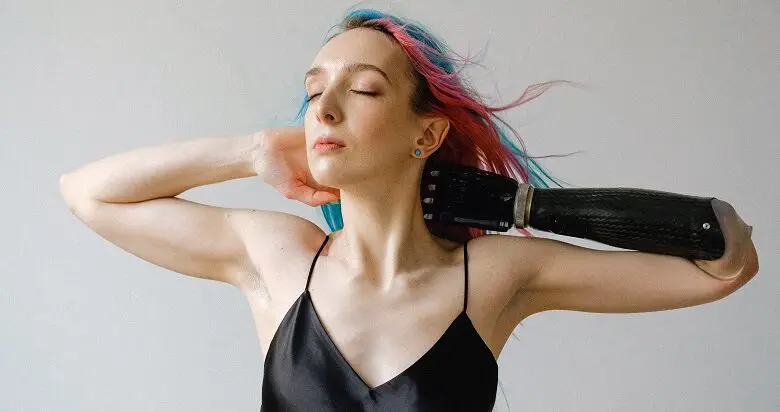
10 things living with a disability teaches you
If you have a disability, you’ll know that although life will throw you a number of challenges and frustrations, they can ultimately lead to learnings and even positives. As we come to the end of a very difficult 2020, our writer Raya lists 10 things living with a disability can teach you – giving you strength for a better 2021.
Across the media, TV and films, the idea that disability is the worse thing that can happen to anyone is so often repeated. And this misconception is played out in society.
I frequently meet people who truly believe that being disabled is worse than being in prison. As a disabled person, I know this isn’t true.
Yes, there are obstacles we have to overcome, and often many more than the average non-disabled person. But it is for this very reason that disability can enrich your life rather than devalue it.
I, along with many other disabled people, have learnt so many things through living with a disability – and I’m a better person for it.
1. Tolerance
For some peculiar reason, disability brings out the most ridiculous views in some non-disabled people.
I have heard so many irritating and patronising comments, such as “I will pray for you to get better”, or “Despite all this, you are still smiling.” The list goes on.
One upside to this is how tolerant it can make us. After a while, you become immune to maddening remarks and people’s ignorance.
This tolerance extends to medical professionals who often fail to listen and make wild assumptions that are ill-founded, all of which require a high level of patience.
2. Adaptability
When you have a disability, the chances are you regularly encounter a number of changes in your life, particularly if your disability is progressive. This means that you have to learn to be very adaptable.
When your disability deteriorates or your situation alters, you will already be equipped to cope with the upheaval and adapt accordingly.
3. Solving and fixing problems
Often being disabled results in you having more than a few types of equipment and gadgets that can and do break. And we all know that waiting for someone to fix them can take an age. So what do many of us do….? Solve the issues ourselves.
Most disabled people have had to learn how to fix almost anything with duct tape, safety pins, velcro… and a ‘poker face’ or a smile.
It is a trait that you pick up from facing many obstacles that require overcoming. We so often meet people who tell us that we “Can’t do it” – so we have to find a solution and prove them wrong.
4. Coping strategy
Disability teaches you to be strong. You have to cope with and overcome challenges every day.
You have to learn to deal with not just physical obstacles but ignorant attitudes and a non-inclusive world. You have to fight to gain even your minimal right.
And with it all, we have to learn to not only cope, but move on and be happy.
5. Patience
Patience comes as second nature when you are disabled because you are constantly ‘waiting’, whether it’s for an accessible taxi to take you somewhere or for your PA to arrive to help with your personal care.
Basically, when you rely on others, then ‘waiting’ is a game you have to play.
Alongside patience, you learn to remain calm. As you will soon realise, losing your temper or getting angry will not change much.
All it will do is impact your health by getting you stressed and anxious. Therefore, staying calm is the best option, as you shrug things off and just carry on with your life.

6. Determination
When you live with a disability, you experience people regularly telling you what you can’t do because of your physical ability. So many put barriers in your path.
I have been advised against pursuing a university degree, told not to aim high and rejected for various job opportunities.
However, instead of simply grinding me down, these struggles evoke a sense of determination within me, as is the case with many other disabled people.
We are determined to prove people wrong and not let negative and ignorant attitudes deter us from reaching our aims.
7. Gratefulness
Having spoken to a few disabled people, they all agreed that their disability has made them realise that life is short and they need to get out there, live it to the fullest and accept what it for what it is.
Also, carrying the belief that the glass is not just half full, but sparkling too, really helps! Enduring tough days makes us appreciate and be grateful for all the good ones.
8. Empathy and acceptance
EVERYONE has something they have to deal with, no matter what their situation. It may not be able visible or audible, but it’s there.
Therefore, a sense of empathy and acceptance is present in most disabled people because we have ourselves experienced prejudice, discrimination and judgement. We know how it feels and would never inflict it on others.
9. Stubbornness
Stubbornness is a life skill that will get you far. It teaches you how to think laterally when you can’t solve a problem and come at it from different angles.
When you are disabled and constantly facing barriers, being put down, having people dismissing you and not listening to you, you have to be stubborn.
You have to fight to pursue your aim, whether you are right or wrong. Either way, the feeling of being in control and trying your best is enough of an incentive.
10. Having a cause or purpose
It’s inevitable that it will take some years to embrace and accept your disability. It’s a natural progression as everyone struggles with their identity.
But having a disability means you automatically have to endure barriers and inequality, and that in itself gives you a cause or an aim.
Many people wander through life without having a target or a mission. Everyone needs something to be passionate about and work towards achieving.
By Raya AlJadir
More on Disability Horizons…